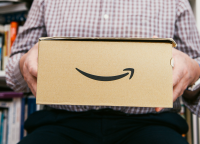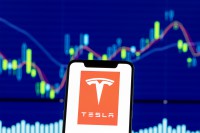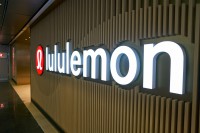Your cart is currently empty!
Tech News Digest – July 3
Amazon to Pay Special Bonus to Frontline Workers

Online retail giant Amazon will pay frontline employees a special bonus for their efforts during the pandemic.
“In a memo to employees, Dave Clark, Amazon’s senior vice president of retail operations, said the company will pay full-time warehouse, Whole Foods and delivery workers a $500 bonus. Part-time workers will receive a $250 bonus, while Flex drivers who deliver packages for Amazon will receive $150 if they worked more than 10 hours in June,” writes Annie Palmer of CNBC. “Whole Foods store managers will get a $1,000 bonus, and owners of Amazon’s third-party delivery services will get a $3,000 bonus.”
From my perspective, Amazon’s decision makes sense. Rewarding and incentivizing critical employees in difficult times is a good call, on many levels. I expect that we will see similar moves from other major consumer-facing brands in the near future.
Despite Continuing Turmoil, the Stock Market Had Its Best Quarter Since 1998

Even as cases of COVID-19 surge in some parts of the U.S., the market this week recorded its best quarter since 1998.
“The Dow Jones Industrial Average was up 0.8%, over 200 points, on Tuesday, while the S&P 500 rose 1.5% and the tech-heavy Nasdaq Composite gained 1.9%,” notes Sergei Klebnikov of Forbes. “The Dow has surged 18% since the end of March, its best quarterly performance since 1987, while the S&P jumped over 20% for its best quarter since 1998. Both indexes are still down for the year, by over 10% and 4%, respectively.”
Tesla Surprises Analysts With Higher Numbers

Tesla has overdelivered in terms of vehicles manufactured during the second quarter. The innovative company delivered 90,650 vehicles, surprising the analysts.
“Analysts had expected the electric car maker to delivery about 72,000 vehicles during the last three months, according to a consensus of analysts surveyed by FactSet. A broader set of analyst estimates, compiled by Bloomberg, set Wall Street expectations for Tesla higher at 83,000 vehicle deliveries in the second quarter,” write Lora Kolodny and Michael Wayland of CNBC.
Lululemon Buying Home Fitness Tech Startup

Here’s an interesting example of the convergence of fashion, health, home fitness and technology. Lululemon, a popular apparel company, plans to buy home exercise startup Mirror for $500 million. As its name suggests, the startup has developed a technology-enabled mirror that allows customers to take part in fitness and personal training sessions.
“Mirror, which launched in September 2018 and has raised $72 million from investors including Lululemon, is one of several companies changing the fitness landscape by making it easy for anyone to engage in live or on-demand interactive workout classes from the comfort of their home — with a substantial price tag. Mirror costs nearly $1,500 before tax and installation fees, plus ongoing subscription fees of $39 per month (for up to six people in a household) to access its on-demand or live classes. Personal training sessions run an additional $40 each,” writes Sara Ashley O’Brien of CNN Business
Coupang, a South Korean Online Retailer, Raises Bar for Fast Delivery and Logistics

Amazon is likely to face stiff competition in the future from Coupang, a successful online retailer based in South Korea. Coupang is ranked second on CNBC’s 2020 Disruptor 50 list of the world’s most innovative companies.
“While the market remains fiercely competitive, in just 10 years e-commerce giant Coupang has managed to become the country’s most popular online retailer,” writes Annie Palmer of CNBC. The Seoul-based company owes its dominant position in part to its slate of fast delivery options, which is powered by its own logistics business, Rocket Delivery. Shoppers can choose from millions of products, many of which are available for overnight or same-day delivery, from fresh produce to tablets.”


